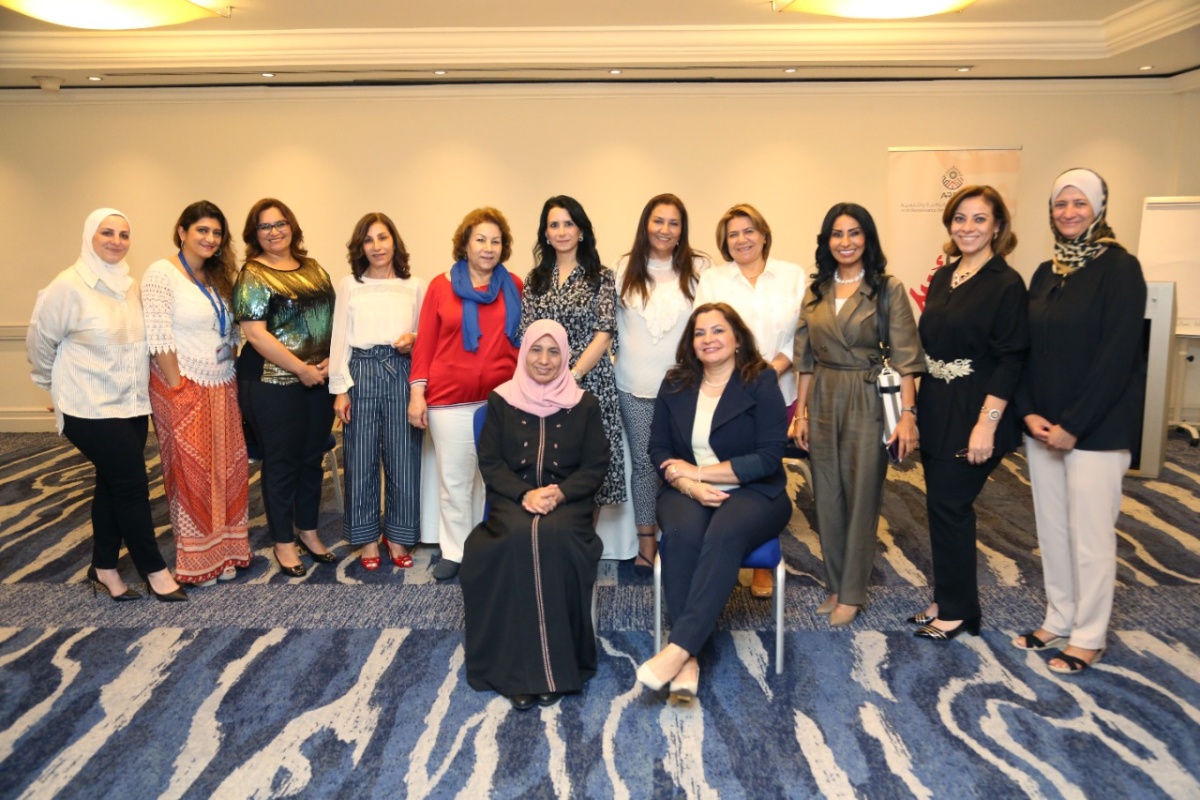As the region goes through several successive crises, many intellectuals and social actors have indicated the need to address community-directed discourses in order to avoid additional problems that may arise in Arab societies. As such, the Arab Renaissance for Democracy and Development (ARDD) identified a need to address this issue and formulate and solidify terms and topics centered around creating a community-directed discourse. Al Nahda Women’s Network, which operates under the umbrella of ARDD, held a dialogue meeting on Wednesday, August 11, 2021, in Amman, as part of its biweekly “Arba’tain” meetings, to address the importance of directing media toward more inclusive community-based discussions and to re-orient media’s focus towards publishing objective and balanced content.
Dr. Sawsan Al Majali, senior consultant in Durrat Al Manal for Development and Training, and a member of the Administrative Committee of the Jordanian National NGOs Forum (JONAF) moderated the dialogue which featured the former member of parliament, Dr. Adab Al-Saud, who holds a Ph.D. in educational sciences, and Ms. Tahani Al-Rouhi, a media advisor at Awareness Center for Human Rights Training.
With regards to local media in Jordan, Al-Saud, citing real-life examples of local media’s coverage of women’s issues, said “The dialogues hosted by local community radio stations led to the consolidation of the role of women in politics.” According to Al-Saud, the discussion of women’s issues in regards to community-oriented discourse has progressed positively. Rouhi stressed that the path to justice for women in Jordan “still has a long way to go” and added that the conversation on honor killings or women’s issues, in general, could be improved. She also indicated that community-based discussions may sometimes turn to violence or bullying, and attributed this to the lack of societal values to accept each other, as she said, “All violence discussed in the community is the result of our feeling of injustice.” Finally, Rouhi emphasized the importance of the media’s role in raising awareness among men and women, saying, “We, the media, are in a state of constant concern to stimulate dialogue and reform society.”
Regarding social networks’ discourse, the politics of its formation, and the criteria for selecting influencers in directing and formulating this discourse in awareness campaigns, the sessions addressed how online influencers who participated in the COVID-19 vaccine awareness campaigns were selected without paying attention to the content they publish, as the only criteria were the number of their followers.
The role of culture and art in our historical discourse was also discussed; the women agreed that when countries begin to develop, they actively start a dialogue with active intellectuals, not by passive participation from behind the screens. Ms. Rouhi replied, “The citizen journalists –who sometimes develop into an influencer on social media- are still relatively young and it’s important that they bear the responsibility for their words while respecting others from minorities or marginalized communities and be careful not to exaggerate in events coverage.”
Later, the topic of online “troll accounts” was repeatedly raised. Speakers and participants noted the importance of maintaining caution against these accounts, which may publish misleading or false content to create chaos or direct the community towards specific aims, which frequently happens on social media. Also, it is not possible to know the source of these accounts, whether they are internal or external voices. Often their comments go without accountability or even documentation.
The session concluded with various suggestions for future sessions, such as the role of religious discourse in community discourse, the role of traditional and online media in raising community awareness, and the importance of having an active role for civil society institutions in community-oriented discourse and actively participating in it.
The Arba’tain meeting series is a series of biweekly meetings held by the Al-Nahda Women’s Network. It hosts experts to discuss updates and the most important public issues in the local and international arena.


